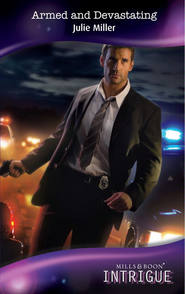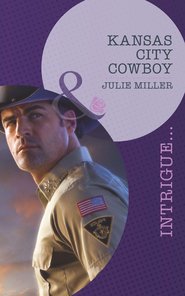По всем вопросам обращайтесь на: info@litportal.ru
(©) 2003-2025.
✖
Search and Seizure
Автор
Год написания книги
2018
Настройки чтения
Размер шрифта
Высота строк
Поля
“I’m just tellin’ you what I heard.”
“Does this clinic have a name?”
“Sweetmeat, you don’t pay me or flash a badge, you don’t get an answer.”
In a surprisingly quick move, he grabbed her arm and slung her toward the street. Maddie stumbled off the curb and smacked into the fender of a parked car. But she ignored the pain radiating through her hip and elbow. Katie could be suffering something far worse. Maddie had no right to complain.
“Please,” she begged, throwing pride and safety to the wind. “Tell me what you know.”
Zero laughed and tossed the crumpled photograph at her. “You ain’ worth it, sweetmeat. Now get off my street and go home where you belong.”
Chapter One
Assistant district attorney Dwight Powers loosened the knot on his paisley silk tie and unhooked the top button of his wilted broadcloth shirt as he rode the elevator up to his eighth-floor office.
Night should have cooled the air and tempered his mood. But the midnight humidity had captured the day’s heat radiating off the concrete and asphalt of downtown Kansas City. It steamed through his pores and into his blood, melting into a suspicious tension he couldn’t quite shake.
The three-hour drive from the state penitentiary in Jefferson City had given him plenty of time to think about the parole hearing he’d attended. Plenty of time to consider the crocodile tears in Arnie Sanchez’s eyes as he apologized to Dwight for the death of his family—without ever admitting any responsibility or connection to Alicia’s and Braden’s murders.
He’d had plenty of time to replay the high-priced words that Sanchez’s lawyer had used to claim that his client was being cruelly and unusually punished by a prolonged sentence. The KCPD and the Kansas City district attorney’s office had a personal beef with his client. Sanchez’s business had suffered. His wife had divorced him. His grown sons were feuding over property entitlements, and his grandchildren were growing up without ever knowing him.
Sanchez had paid his back taxes and court costs, the lawyer claimed. He had a spotless record of good conduct during his incarceration. The State of Missouri had no right to punish a man for crimes that had only been attributed to him—crimes that the KCPD and other law-enforcement agencies had never proven. They claimed locking him up under maximum security for another five years was harsh and unfair.
Dwight scraped his palm across the blond stubble that peppered his jaw and rolled his neck to ease the weary kinks from his body.
It had taken him all of five minutes to present himself to the parole board and outline in succinct terms the crimes Sanchez had been convicted of. He’d explained in remarkably cool, detached logic that Sanchez’s ex-wife and grandchildren could visit him in prison any time they so desired. Even if parole was never granted, after twenty years he’d be free to spend as much time as he wanted with his family.
Dwight had neither option. His family was gone.
Permanently.
Courtesy of Arnie Sanchez.
The light for the seventh floor lit up and the elevator began to slow its ascent.
The parole board had voted quickly, without debate. They thanked Dwight for his time, denied Sanchez’s petition and moved on to the next hearing.
On the drive back to Kansas City, Dwight had had plenty of time to recall the cold, black fury in Sanchez’s eyes and wonder why that unspoken threat hadn’t fazed him. Maybe he was hoping that Sanchez would blow any chance for an early release by giving voice to that threat in front of witnesses.
Or maybe it was because a threat was useless against a man with nothing left to lose.
The number eight lit up, the elevator dinged and Dwight switched the briefcase to his right hand to dig the keys out of his left pocket as the doors slid open.
As soon as the elevator closed behind him, Dwight sensed trouble. Not the Arnie-Sanchez-is-beating-the-system kind of trouble. But something was off-kilter, out of place.
He peered into the long, deserted tunnel of marbled walls and shadows, letting his eyes adjust to the dim glow of the security lights illuminating the hallway. His soft-soled oxfords made no noise on the marble tiles as he headed toward his office.
The emptiness was no surprise. By this time of night, even the die-hard workaholics like himself would have gone home. And he’d passed most of the cleaning crew outside at the utility entrance, taking their first break of the night.
He listened to the cranking, whooshing sounds of the air conditioner regulating the building’s temperature against the August heat. Perfectly normal.
And yet…
Dwight crinkled up his nose. Maybe it was the whisper of cigarette smoke. Someone had broken the rules of the smoke-free building. But that wasn’t what nagged at him. Beneath the tobacco pungency that lingered in the air, he detected something fresher, sweeter—definitely out of place in an environment that typically smelled of leather attaché cases and disinfectant.
He wasn’t alone.
But he didn’t for one moment think that a friend had dropped by to pay a surprise visit. The people he called friends knew he didn’t do surprises anymore.
A slice of light cutting across the hallway diverted his attention to the emergency stairwell, where the door stood ajar. He paused in front of the inch-wide gap to listen but heard nothing beyond the usual creaks and moans of the old steel-and-limestone building that had adorned the skyline of downtown Kansas City since the Truman era.
Dwight pulled off his tie and stuffed it inside his suit jacket pocket. He’d never considered himself any kind of paranoid alarmist. But he’d learned a thing or two about survival over the years. Not just in the courtroom, but in life. He took note of details, no matter how small or insignificant they might seem. Then he processed them until they made sense.
This didn’t make sense.
Did the open door mean someone had escaped? Or snuck inside?
The roar of the air conditioner fans shut off as the thermostat leveled off. But instead of the eerie silence Dwight had expected, he heard a low, mewling noise somewhere in the dark interior of one of the offices down the hall. Had a stray cat gotten trapped inside the building? But how could a streetwise feline account for that sweet, oily scent?
His gaze dropped to a fleck of crimson, almost unnoticeable on the mottled gray-and-black pattern on the marble floor. How did he account for that?
Crouching down on his haunches, Dwight touched the dot of color. The floor was icy cold beneath the tip of his finger. But the spot was wet, sticky and definitely fresh.
Blood.
Suffused with a wary energy that heightened his senses and put him on guard, Dwight stood, balancing himself on the balls of his feet and prepping for whatever adversary lurked in the shadows.
A muted howl turned his attention back toward the hallway. The glow from the stairwell spotlighted another drop of blood. And another. The irregular pattern of droplets zigzagged across the floor, as if whoever was bleeding had staggered from side to side. Had the wounded creature struggled to get into the building? Or to reach the exit?
Dwight overruled his instinct to close the stairwell door behind him to protect his back. If the eighth floor had become a crime scene, the CSI team would want everything left just the way he’d found it.
But if it was just a stupid cat—maybe one who’d gotten into an alley fight—he wasn’t waiting for the police to find out and make the ADA their joke of the week.
Dwight followed the trail to his office and cursed. He could hear music now, something instrumental and indistinct. Had a maid left a radio on? Cut herself on a sharp object and run downstairs for help? Why not take the elevator? Why not use the crew’s walkie-talkies and call for assistance?
An image of Arnie Sanchez’s cold, black eyes popped into Dwight’s head. Just because the bastard was locked away in Jefferson City didn’t mean he couldn’t make a phone call, didn’t mean he couldn’t make arrangements to add to Dwight’s misery.
Dwight slipped his key into the outer door, but, already unlocked, it drifted open. This wouldn’t be the first time someone had broken into his office. But he had a feeling that what awaited him on the other side of the door was far more dangerous to him than any burglar or maid or injured stray.
Dwight crept through the set of cubicles that served his secretary and department clerks. The music was louder here—he could make out the wordless melody from a children’s movie now. The tune was punctuated by discordant wails from… Please, God, be that damned cat.
Clenching his jaw with a tightness that shook through him, he narrowed his gaze to the trail of crimson dots along the gray carpeting. There was a smear on the wall beside the door to his inner office, as if someone had tried to wipe it clean.
Dwight hurried to the thick walnut door that separated his work space from the others. He didn’t even bother with his keys. He pulled out his handkerchief and, as he suspected, the doorknob turned without protest and he stepped inside.
The full force of that soft, powdery scent, tinged with the odor of something slightly more pungent, caught him off guard and sucker punched him in the gut. He gripped the knob tightly, just short of snapping it off in his fist. This was a bad dream. Another one of those damn nightmares.
Only he was helplessly awake. “Son of a bitch.”











